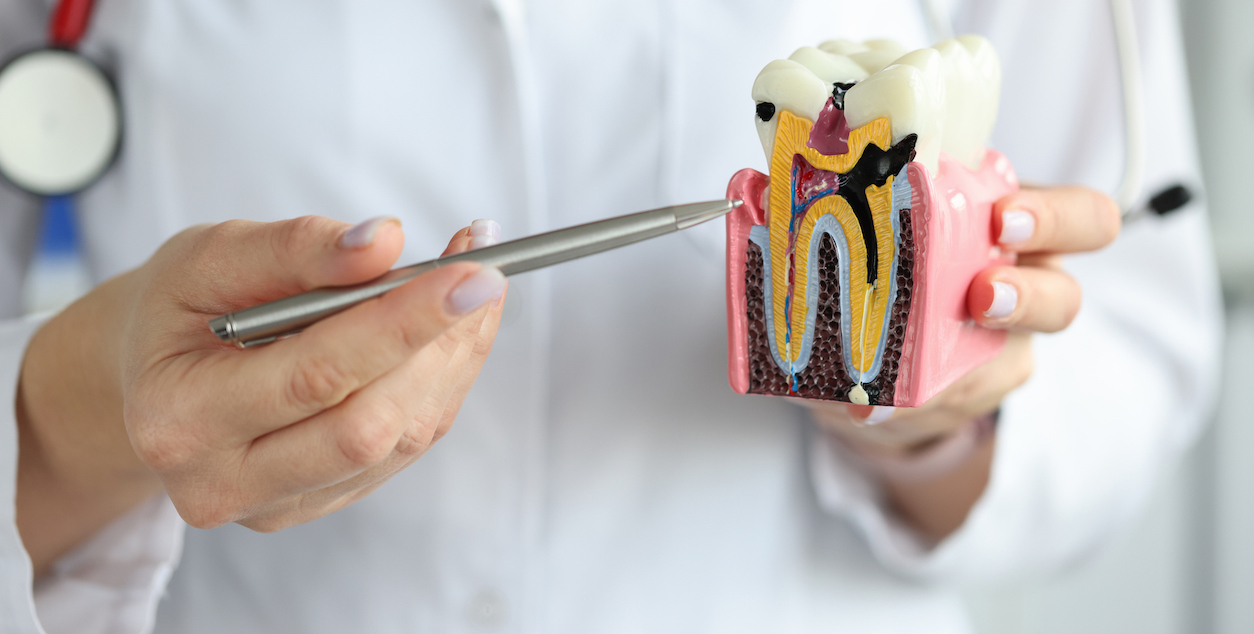Dietary Habits & Tooth Decay
Throughout our life, our teeth and gums are exposed to many things that may lead to gum disease or tooth loss. The most common oral diseases are tooth decay and periodontal disease. Good oral hygiene and regular visits to the dentist, in combination with healthy lifestyle choices, will help avoid these two diseases.
Did you know that tooth decay is related to diet? Tooth decay is linked to sugar intake and how long we leave that sugar in our mouths before brushing our teeth. When sugary foods are consumed, our saliva converts the sugar into acid, which draws the minerals out of our teeth. Over time, this can develop into tooth decay if little is done to prevent it.
Lacking good dental cleaning habits is the second most significant factor — after sugar — that contributes to tooth decay. According to the Australian Dental Association (ADA):
- 75% of adults rarely/never floss or clean between their teeth.
- 1 in 5 adults brush only once a day.
- 39% of parents report their children drink 2–5 soft drinks per week.
- 2 in 3 adults usually visit the dentist for a problem rather than a regular check-up.
- 47% of adults (18+ years) consume too much sugar.
Just like a healthy body, a healthy smile is reliant on good nutrition. A balanced diet with decent amounts of nutrients is key to a healthy mouth and general well-being. The foods we eat and our eating habits are key to preventing decay and gum disease.
Healthy Teeth & Nutrition
Most people don’t think of a balanced diet as being beneficial to our teeth and gums. In fact, foods with calcium and phosphorus contribute directly to a healthy smile by protecting and rebuilding tooth enamel. Foods such as cheese, milk, plain yoghurt, and leafy greens are high in calcium while foods like meat, poultry, fish, and eggs are great sources of phosphorus.
When it comes to fruit and vegetables, choose ones that are high in water and fibre. These types of fruits and vegetables help to stimulate saliva, which in turn helps wash away acids in the mouth. Vegetables and fruits with high vitamin C content will also help support healthy gums (gingiva).
Drinking lots of water is also important, especially as it contains fluoride. Sugar-free drinks are not a solution and as they are acidic so they can damage teeth. In contrast, a glass of water after each meal or snack can reduce the acid in our mouths by as much as 60%.Drinking water with fluoride is one of the easiest things you can do to prevent cavities.
Dental Habits for Life
Other things we can do to reduce the risks of tooth decay are:
Reduce sugar intake – The average adult should not be consuming more than 6 teaspoons of sugar in the food and drinks they eat per day. For context, a 600ml bottle of soft drink contains approximately 16 teaspoons.
Chew sugar-free gum after eating – Chewing gum for 20 minutes can lead to more saliva being produced. Saliva can help neutralise the teeth-decaying acid that the bacteria in our mouths produce. Fun fact: apparently, cheese can also help reduce the acid in our mouths.
Brush twice a day – Making brushing and flossing twice a day part of a routine will ensure that your teeth are clean and maintain your healthy smile. If you have any concerns about your dental hygiene or tooth decay, speak to your dentist. If you would like a second opinion at Western Prosthodontic Centre, call us on (08) 9321 1632 or contact us online.

